Overture provides a specialised workflow for classical bookings, allowing you to manage orchestras, ensembles, and soloists efficiently. This guide walks you through the process of adding a classical booking, ensuring you capture all necessary details.
Accessing the Calendar
Navigate to the Calendar tab in the top menu. The calendar is the best place to start, providing an overview of all bookings. The sidebar displays booking statuses, which help track each booking’s progress. You can add a booking using the Add Booking button, but the most efficient way is to add it directly onto the calendar.
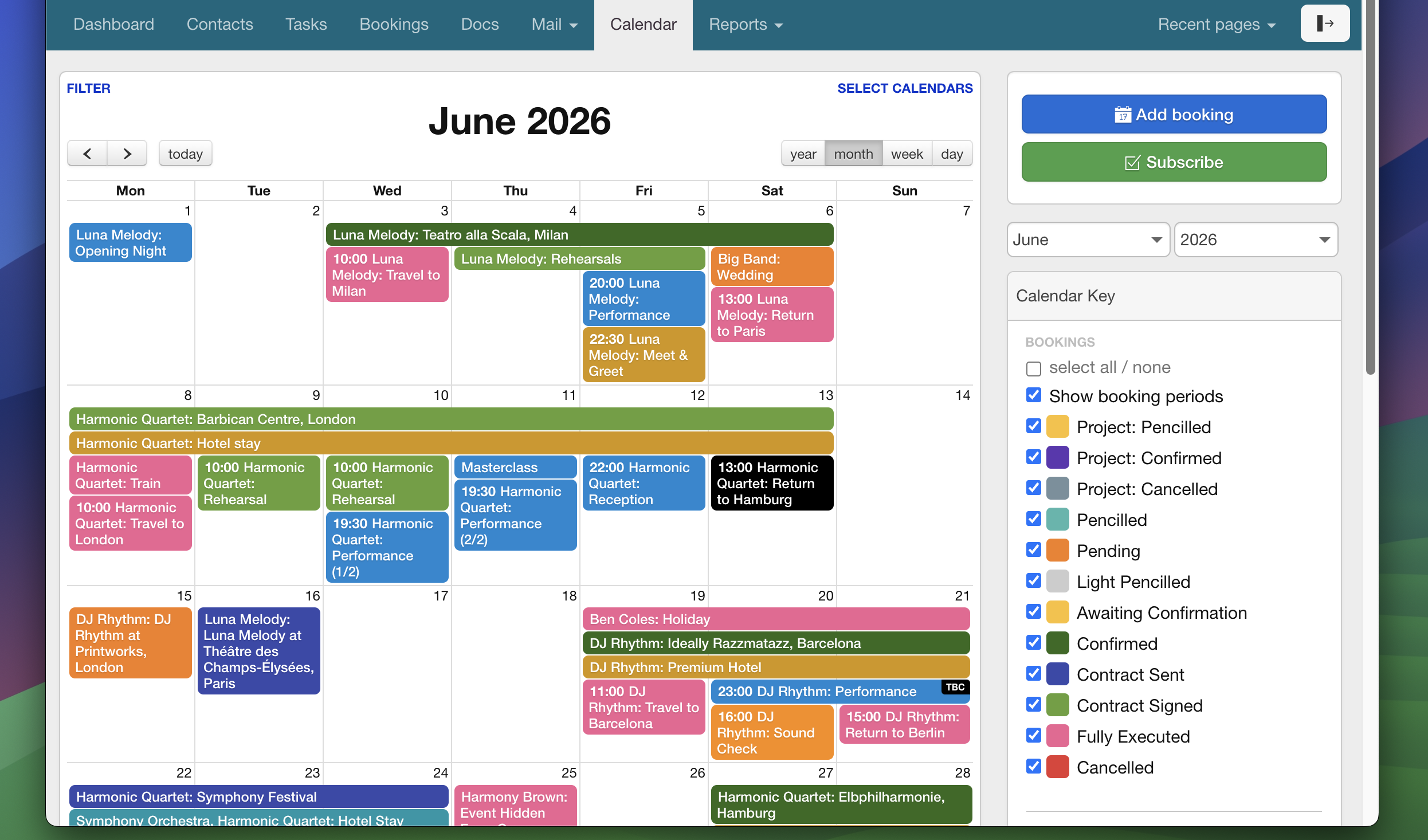
Selecting an Artist and Adding a Booking
Before creating a booking, make sure the correct ensemble, orchestra, or soloist’s calendar is displayed by searching for their name in the search bar.
To add a classical booking:
– Click on the date you need or click and drag to highlight multiple days.
– A booking form will appear where you can enter key details.
– Set the booking type and status (e.g., Pencilled, Confirmed).
– Assign the correct agent managing the booking.
– Click Add to finalise.
Once saved, the booking will appear on the calendar, colour-coded based on its status.
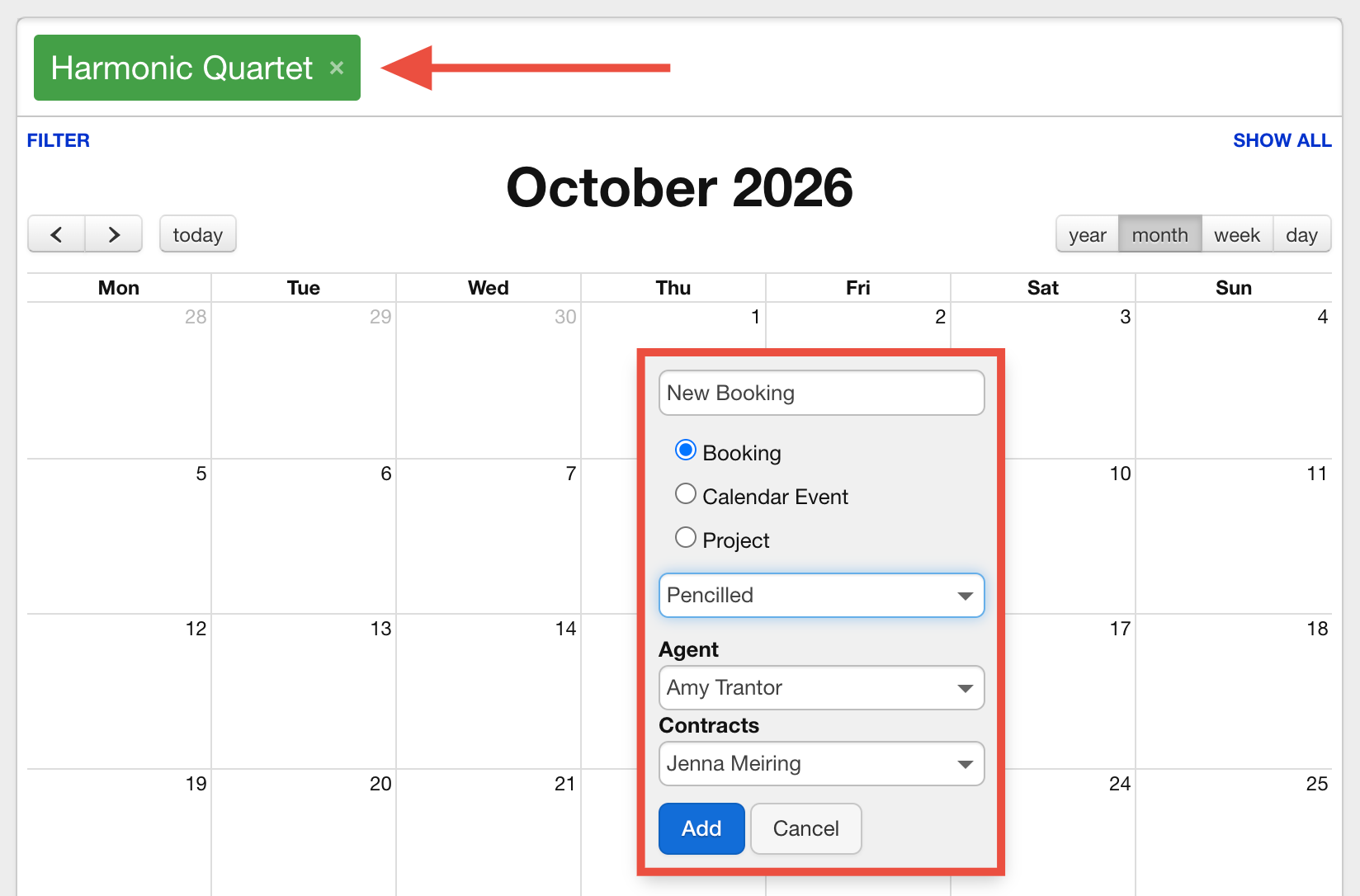
Managing Booking Information
Each booking has a dedicated Booking Page where all related details are stored. You can access this page by clicking on the booking in the calendar.
The sidebar menu on the Booking Page provides access to:
– General Booking Details
– Financials
– Documents and Notes
– Notifications
– Calendar Events (such as Performances and Rehearsals)
– Repertoire and Performance Details
While this may seem like a lot of options at first, don’t worry—we’ll go through each section in future guides.
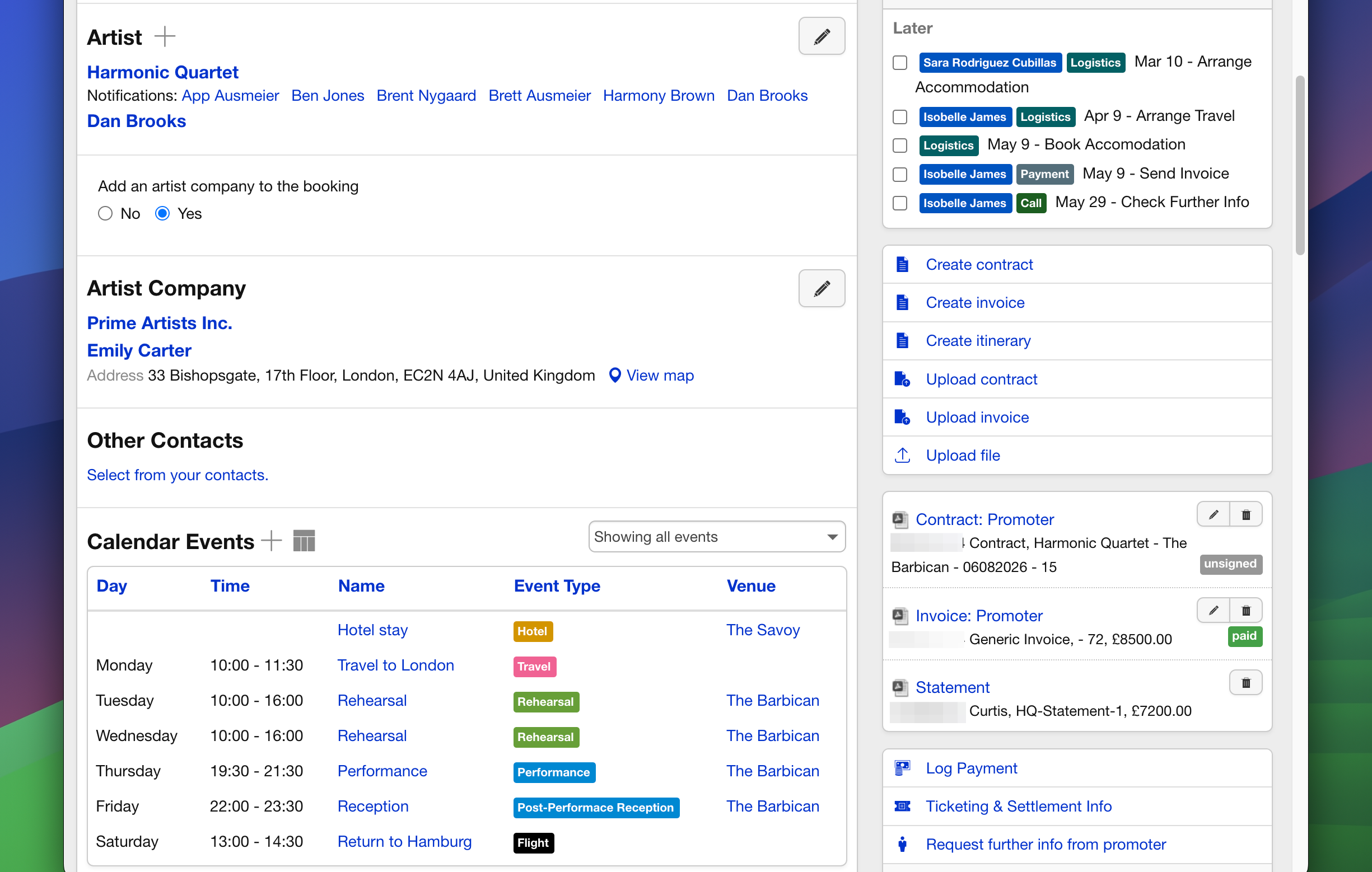
Adding Booking Details
Start by entering the promoter or concert organiser’s details:
– Search for the organisation name and select a contact.
– Alternatively, enter the contact name first, and their associated organization will populate automatically.
– Click Save Section after making changes.
The artist field is pre-filled if the booking was added via the artist’s calendar.
Overture also shows who will receive notifications about this booking. To customize, click Edit Notifications and select/deselect recipients.
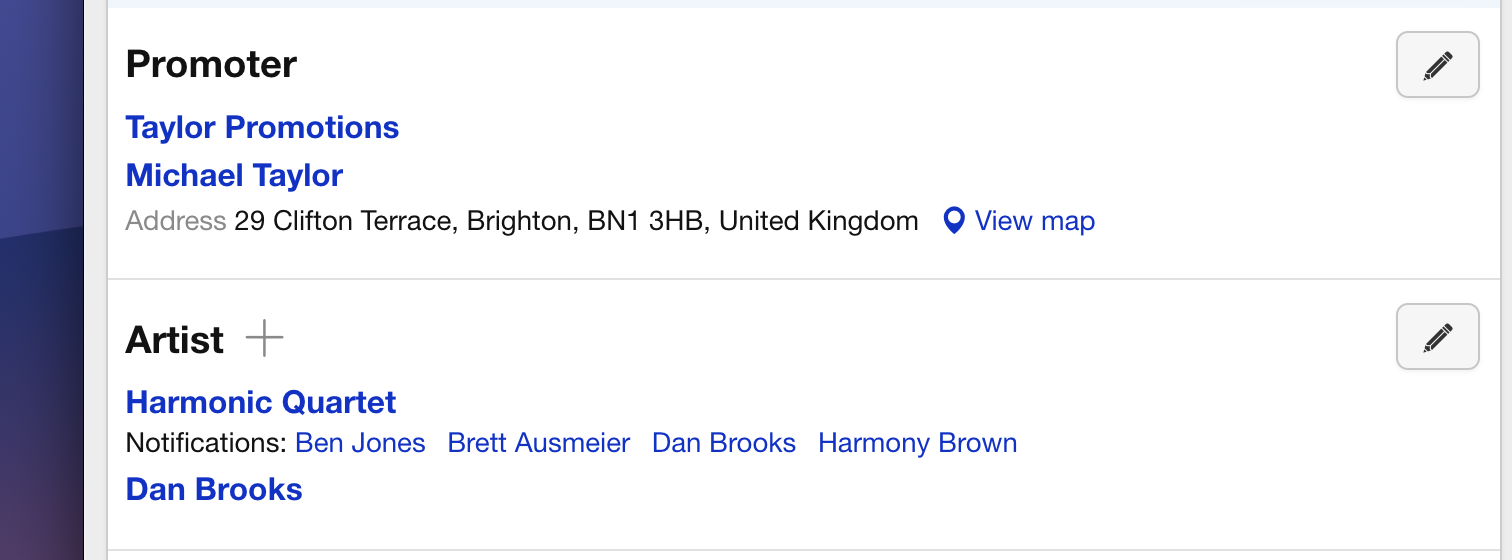
Adding Calendar Events
Click here to add a new Calendar Event such as a Performance, Rehearsal or Travel arrangements:
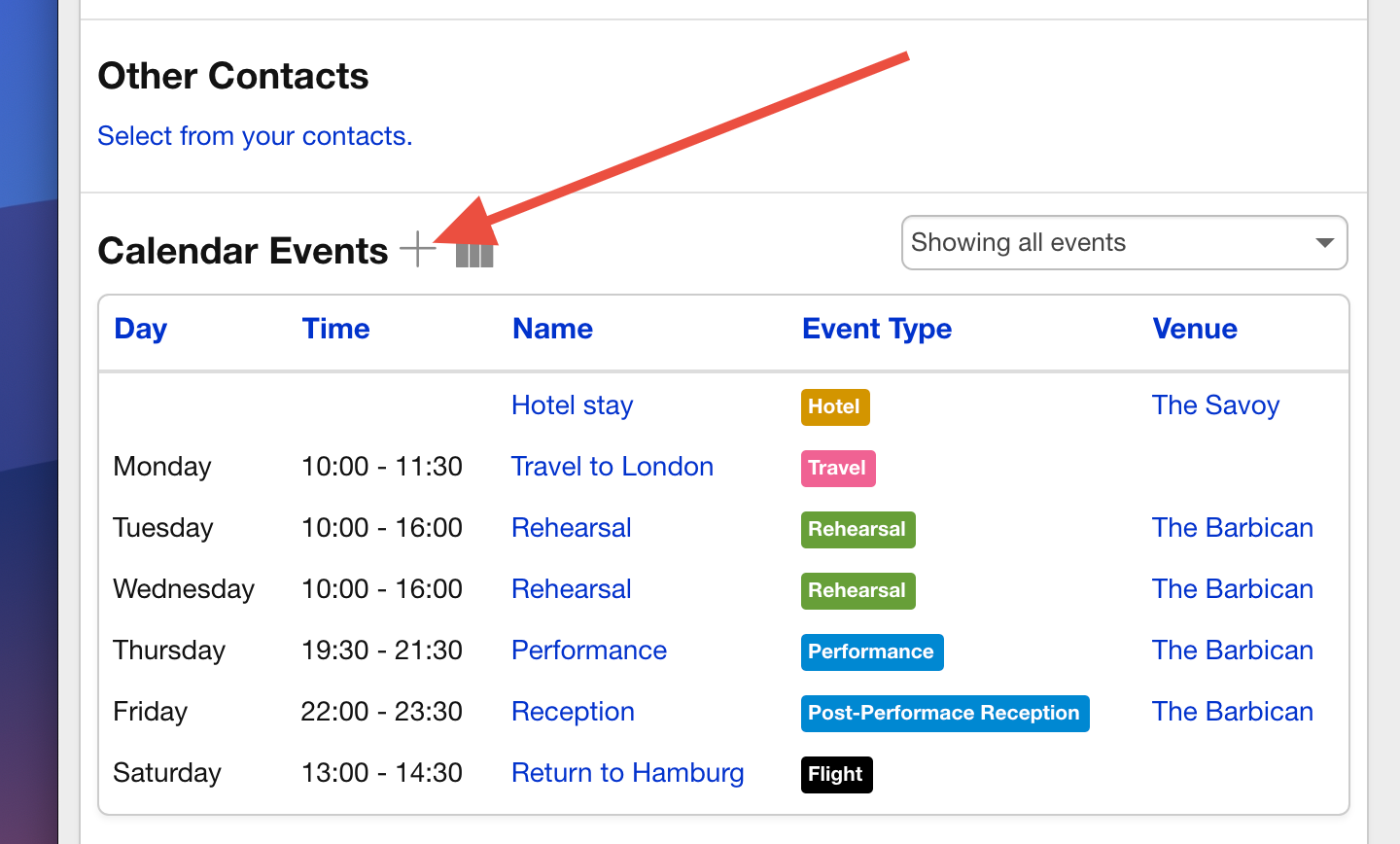
Classical performances often require additional details, such as:
– Repertoire: List of works being performed.
– Orchestration Requirements: Specific musicians, instruments, or ensemble configurations.
– Rehearsal Information: Date, time, and location for rehearsals.
Keeping these details updated ensures that everyone involved is informed and prepared.
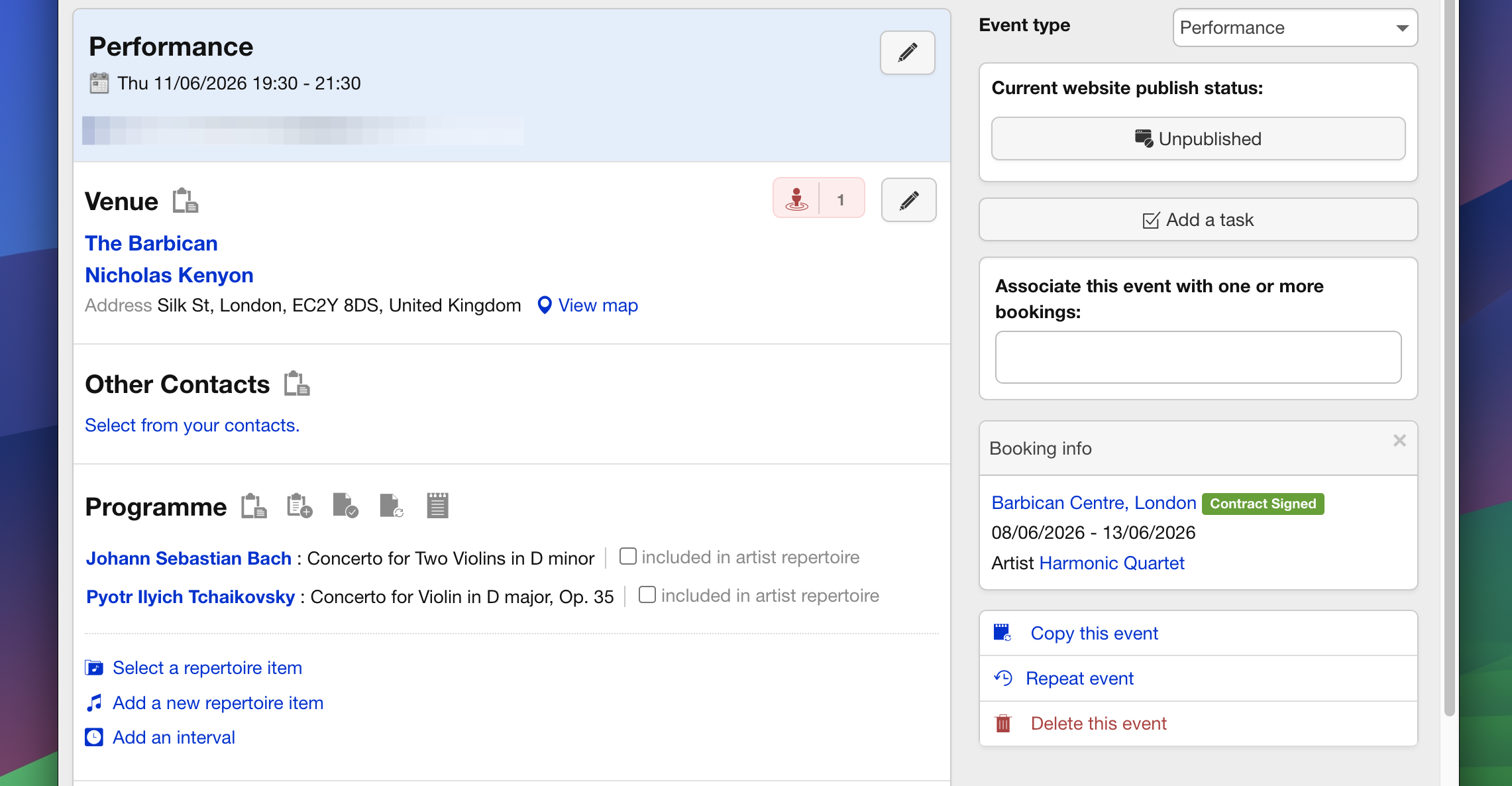
Entering Financial Details
Classical bookings often have specific financial structures, including performance fees, per diem rates, and travel expenses. The Financials section allows you to:
– Add a fixed fee or percentage-based deal for the artist.
– Set commission percentages payable to the agency.
– Include taxes, VAT, or other deductions.
– Add expenses such as travel, accommodation, or instrument transport costs.
Once saved, the financial table will automatically total the amounts for easy tracking.
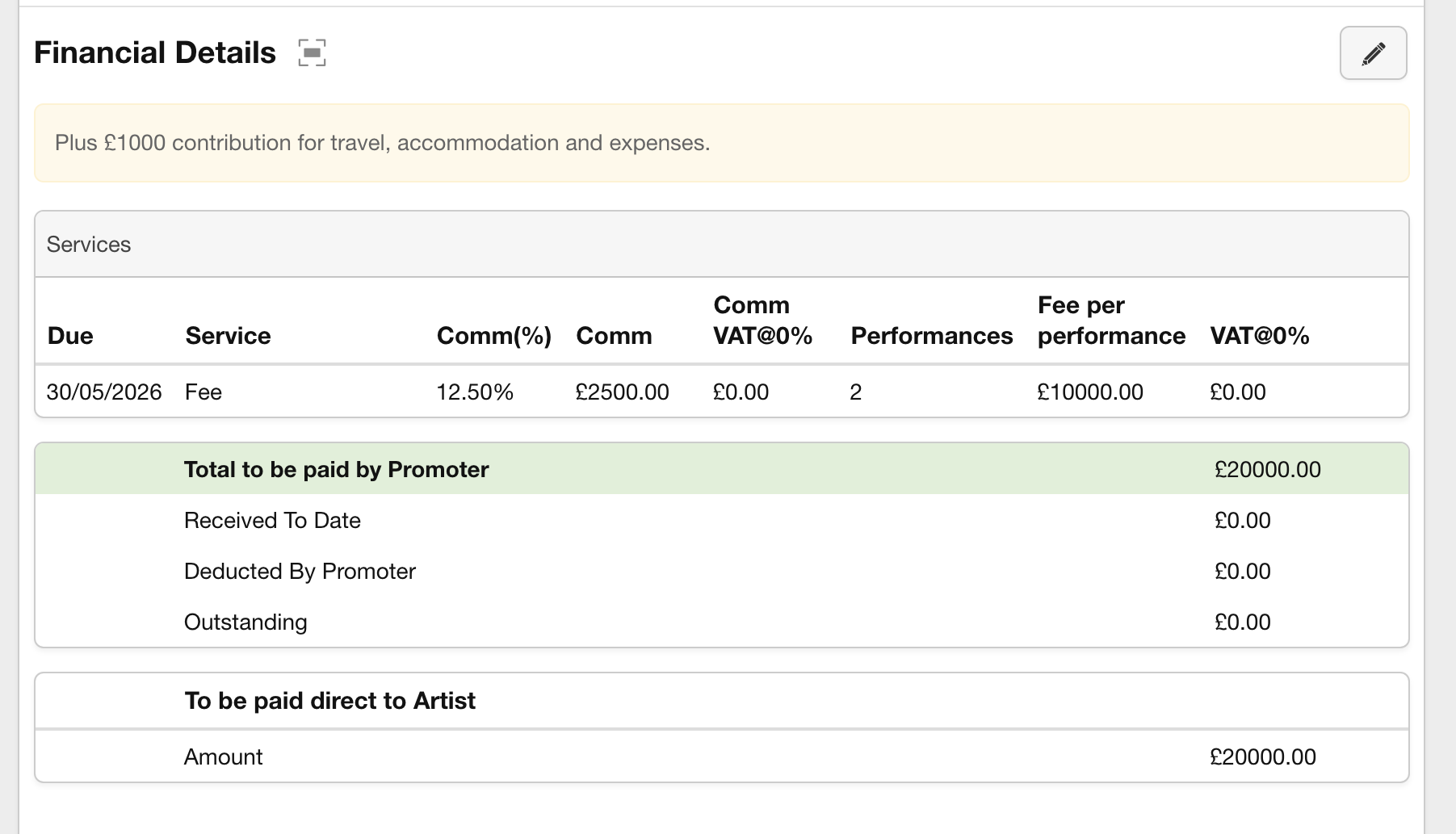
See this guide for more information on Overture’s various deal types:
Next Steps
That’s a brief guide for adding a classical booking! You can now:
– View and manage bookings directly from the calendar.
– Update booking details as information becomes available.
– Generate contracts and invoices from the booking page.
For more advanced features, check out our guides on contracts, invoices and repertoire management. Happy booking!
